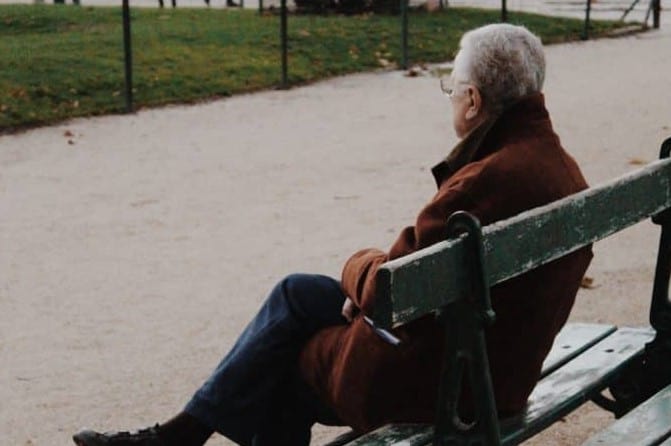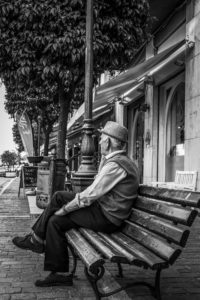What is the Fourth Age?

Author: Ruth Preston
Celebrating the Fourth Age and Valuing the Contributions of Older People
 Those in the fourth age are in their eighties, nineties and centenarians. Many commentators refer to the fourth age as living with the ‘Gift of Years’, recognising that the seniors have much to give in terms of their experience and wisdom; that those who may be less able physically and even mentally, often have great strength in their spirituality. Christian faith organisations have many opportunities to show a recognition, appreciation and celebration of old age; in particular the oldest old.
Those in the fourth age are in their eighties, nineties and centenarians. Many commentators refer to the fourth age as living with the ‘Gift of Years’, recognising that the seniors have much to give in terms of their experience and wisdom; that those who may be less able physically and even mentally, often have great strength in their spirituality. Christian faith organisations have many opportunities to show a recognition, appreciation and celebration of old age; in particular the oldest old.Viewing older age as a precious gift, helps people think of those in the fourth age with positive respect and affirmation; to remember and value the wisdom they bring to the younger generations; to view older people just as useful as other members, in service of the church and wider kingdom work.
The fourth age is a period which requires a special approach – a celebration of life’s successes and achievements, a letting go of failures and disappointment and a recognition of the wisdom and strength developed over many years. The later stages of life can enable people to reflect on their own experiences, shift their own values and expectations, and appreciate that (for some things) there are no absolute answers.
It has been suggested that people in the fourth age can become ‘more themselves’, as they are able to let go of things that are no longer important, accept that some things have no answers and better ‘entertain paradox and hold polarities in tension’ (Walker 2013). It seems that through spiritual and pastoral support, those in the fourth age can be helped to deal with any perceived failings of life, discover new meanings and values and become more connected to their faith (Woodward 2008; Walker 2013).
Specific Opportunities and Blessings of the Fourth Age
An understanding of the importance of spirituality and an anticipation of heaven.
An opportunity to experience God’s grace and prepare ourselves to enter glory.
A fullness in knowing God – when wisdom is gained through knowledge and experience.
Spiritual growth and deeper intercession and relationship with God.
For exhibiting the fruit of the Spirit – ‘love, joy, peace, patience, kindness, goodness,
faithfulness, gentleness and self-control.’ Galatians 5:22,23.
For sharing God’s goodness manifested over a lifetime.
For sharing and mentoring the younger generation.
 Churches and other Christian faith-organisations have great potential and opportunities to encourage and enable older people to feel valued and appreciated; to feel more positively about themselves and to be more involved in the work and ministry of the organisation. Whilst growing older may lead to reduced physical activity, fewer opportunities to travel and fewer social demands and responsibilities, those living in the fourth age still have much to contribute, in terms of pastoral and spiritual service. It is important for churches to recognise that those in the fourth age will often have wisdom, biblical knowledge, life experience, and spiritual maturity which can be great assets to any ministry and most valuable in the discipleship and growth of younger Christians
Churches and other Christian faith-organisations have great potential and opportunities to encourage and enable older people to feel valued and appreciated; to feel more positively about themselves and to be more involved in the work and ministry of the organisation. Whilst growing older may lead to reduced physical activity, fewer opportunities to travel and fewer social demands and responsibilities, those living in the fourth age still have much to contribute, in terms of pastoral and spiritual service. It is important for churches to recognise that those in the fourth age will often have wisdom, biblical knowledge, life experience, and spiritual maturity which can be great assets to any ministry and most valuable in the discipleship and growth of younger ChristiansFor many Christians in their fourth age, their faith has been the context of their life for many years. Some will have been active in spreading the gospel message to the next generation, while others have been faithful in their Christian living, day by day. Some will have had wider missionary or ministry roles and bring to later life a rich variety of skills, experiences and aptitudes for mission and ministry to young and old. Learning from experience of their own faith journeys, those living in the fourth age have much to give, in terms of pastoral and spiritual support to others. They are often excellent prayer warriors, telephone missionaries and ‘friendship evangelists’ (Jewell 2013).
Christians On Ageing (2019) reminds us that it is important to remember and reiterate that the stories of those in the fourth age are not just about the past, they are relevant to the here and now, of the Churches’ proclamation of the gospel of Jesus Christ and to the service of the kingdom of God.
Reflection
What opportunities does our church provide to encourage and appreciate older people?
How could our church use its oldest members to support, share and develop the younger generations?
Are the older ‘prayer warriors’ in our church invited to play a central role in the prayer life of our church?
How do we show that we value and respect our oldest church members? Do those in the fourth age feel that they are worthless or a burden to the church?
How do we celebrate the lives and achievements of those living in the fourth age? (Apart from holding funerals).
© Professor Keith Brown from ‘Guidance for Christian Faith Organisations in the Support and Value of Older People’.


























